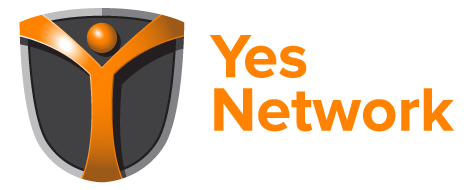Written by: Michael Kennedy
Bruce moved to St. Cloud from New Jersey in 2014. He currently works in the district as a Dean of Students at Apollo High School and has been working on completing his degree for the past 2 years to get this position. Serving in the community with the Boys and Girls Club, Bruce established relationships with kids creating a boy’s group to mentor them during their formative childhood years. The transition to YES Network was easy, given his experience at the Boys and Girls Club. His favorite parts about working with YES Network are interacting with kids, seeing them run to his car when he arrives, and their excitement to help at the site.
 Bruce does not try to get the kids to understand him. Instead, he hopes that the kids and their families feel that he invests in their futures and believes in them. He owes this approach to his upbringing. He mentioned that it is not his job to insert himself or tell the kids what to do; instead, he wants to teach them valuable life skills such as work ethic, good communication, and managing relationships. He does this through providing meals, hiring kids in the communities to help serve the food, playing and organizing games with them, and resolving conflicts using a restorative approach.
Bruce does not try to get the kids to understand him. Instead, he hopes that the kids and their families feel that he invests in their futures and believes in them. He owes this approach to his upbringing. He mentioned that it is not his job to insert himself or tell the kids what to do; instead, he wants to teach them valuable life skills such as work ethic, good communication, and managing relationships. He does this through providing meals, hiring kids in the communities to help serve the food, playing and organizing games with them, and resolving conflicts using a restorative approach.
“Listen, I don’t expect you to change overnight. No, but you must start somewhere. I use the restorative justice approach. I bring them together and meditate. After bringing up the problem, I let one talk and the other listen and vice versa. I won’t give answers, just suggestions. One suggestion I use all the time is if you continue to fight amongst each other, like how do you ever expect to succeed in anything as a community?”
Two of Bruce’s sites are predominantly Somali. He can speak Somali and finds it extremely helpful in building rapport and creating a welcoming atmosphere. He mentioned how much learning a little of their language can mean to them. Hearing it spoken and understanding that you are willing to step out of your comfort zone is important for them, given some are shy and do not want to open up. “The first thing they say after you speak Somali to them is you speak Somali? And you can ask them to teach you usually they are willing to.”
Bruce sees the impact social media has on interpersonal relationships and wants kids to revert to solving problems face to face, with discussion and mediation, instead of comfortably behind a screen. Face-to-face communication is critical because there is no intermediary. It is you and the other person. He notes, “It’s about-face to face interaction. You must do better when you talk face to face. You can’t hide or put-up barriers behind screens to protect your feelings. Yeah, like this, they must beat themselves. Yeah, I can see like a break down those, those barriers that you have to protect your feelings.”
His main objective is to address social media’s influence on kids’ development in the communities. These kids, he says, after getting to experience a household environment and Yes Network facilitated environment, act much different at home with their parents than they act with us. Social media plays an immense role in how they carry themselves at the sites, and he is coming up with ideas to address it, understanding that he must start somewhere.
When asked what he would answer to someone asking what the YES Network does, he said, “So if anybody came to me now, today and asked me this question, after I had time to think about it, I would say we say yes to life. Yes to life, that leaves a broad window for them to take on what life throws.”



